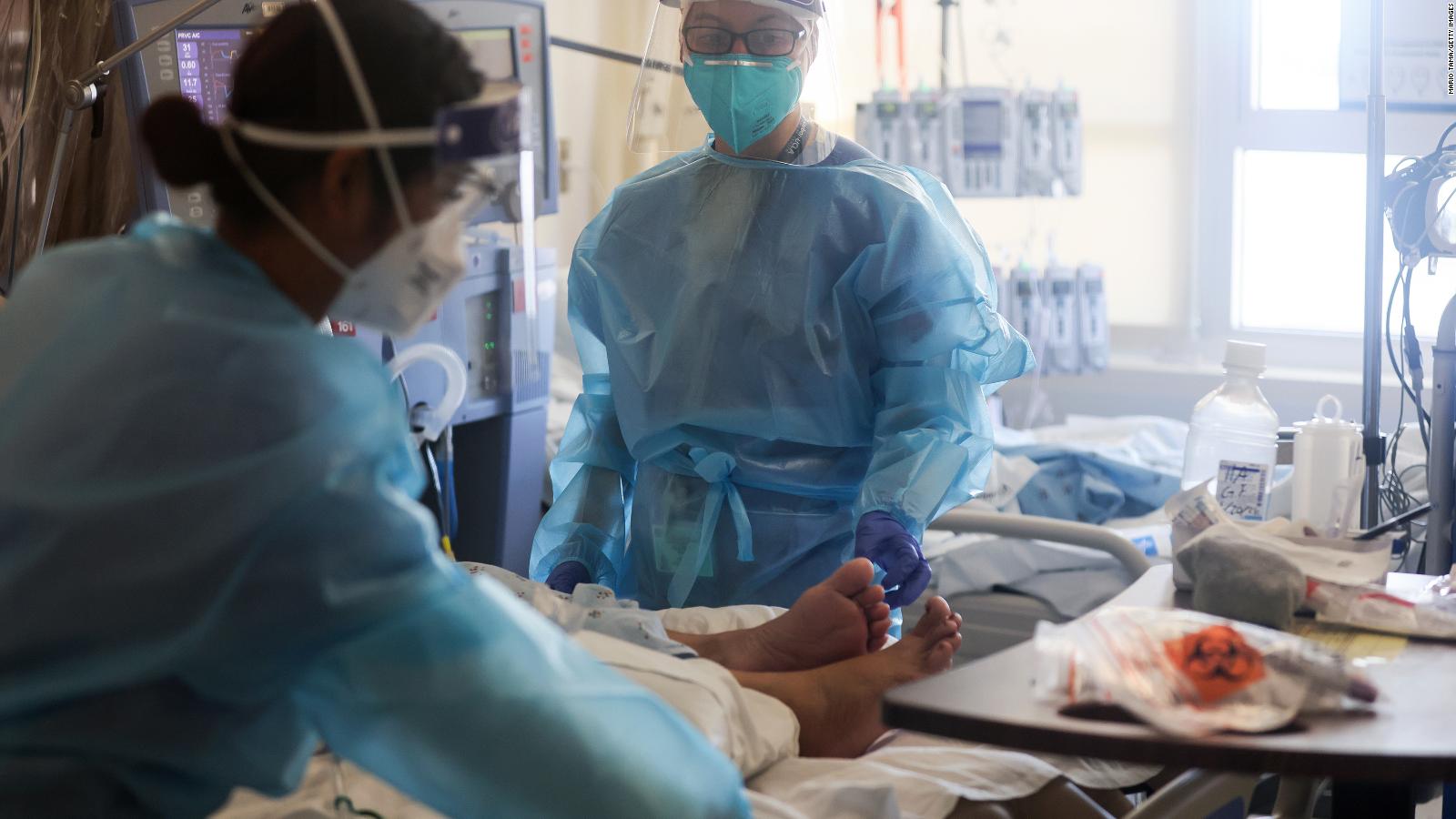Scientists make a map of covid-19 variants in Mexico 6:25
(CNN) -
The coronavirus put the world in check and caused a social and economic challenge around the planet.
The challenge of facing a pandemic is compounded by the appearance of the variants, even when millions of people have already been vaccinated.
As of June 22, the World Health Organization (WHO) identifies 11 active variants of the virus.
This variant of covid-19 worries in the US 2:30
The organism, in turn, groups the variants into "worrisome" and "of interest", according to the characteristics it has adopted after the change.
Worrisome variants of the new coronavirus
Alpha
Originally known as B.1.1.7, it was first identified in September 2020, in the county of Kent, UK.
This variant is highly transmissible and has already been detected in more than 80 countries.
Read more here:
Covid-19: new studies on the variant detected in the United Kingdom
The coronavirus variant first identified in the UK appears to be more deadly in recently released data
Beta
First seen in South Africa, this variant has the E484K mutation, which is linked to immune escape, and the N501Y mutation, which is suspected to help other variants be more contagious.
It has been shown to be 50% more transmissible and evades Lilly's dual monoclonal antibody treatment, but not others.
Blood tests and real-life use suggest that it can infect people who have recovered from COVID-19 and also people who have been vaccinated against the disease.
advertising
The delta variant of covid-19 worries in the US 0:59
WHO has a new labeling system for coronavirus variants
Gamma
Initially named P.1, it was first seen in Brazil, it also has the E484K and N501Y mutations, with more than 30 more.
It has been shown to bypass the effects of Lilly's monoclonal antibody treatment, but not one manufactured by Regeneron.
Blood tests show that it could escape both natural and vaccine-induced immune responses.
Dr. Huerta explains the risks of the gamma variant of covid-19: "It can circumvent antibodies"
Delta
The B.1,617.2 strain, officially known as the delta variant of the new coronavirus, appeared in India and was the fourth to be declared of concern by the WHO.
Experts now believe that the delta variant is probably more transmissible.
The 5 things you should know this June 22: The danger of the delta variable
Matt Hancock, the UK Health Secretary, said at the weekend that the variant is "about 40% more transmissible" than the previously dominant alpha variant, which was already more transmissible compared to the original form of the virus. .
Preliminary evidence suggests that the delta variant might cause a higher risk of hospitalization compared to the alpha, according to Public Health England (PHE).
The delta variant of covid-19 worries in the US 0:59
Some of the interesting variants of coronavirus
Epsilon
There are two variants: B.1.427 and B.1.429.
They were first identified in California.
They have the L452R mutation.
The Centers for Disease Control and Prevention (CDC) say they are about 20% more transmissible and may partially resist the effects of Lilly's monoclonal antibody treatment.
Blood tests suggest that it could re-infect people who have been vaccinated against covid or who have recovered, but that has not yet been proven in real life.
Coronavirus variants first detected in California are officially variants of concern, says CDC
Zeta
Circulating in Brazil since April 2020, this variant also carries the worrisome E484K mutation and has not been widely found worldwide.
Dr. Vivek Murthy: I am concerned about the unvaccinated 0:45
Eta
First seen in the UK and Nigeria, this variant of the new coronavirus carries the E484K mutation.
It has been found in less than 1% of samples tested in the United States.
That surveillance is incomplete.
Weeks ago, CDC Director Dr. Rochelle Walensky said the United States is now sequencing about 8% of the roughly 450,000 weekly COVID-19 cases in the country.
Iota
First seen in New York last November, this variant - formerly known as B.1.526 - has what's called a 484 mutation, a change in the part of the virus called the spike protein, which is the knobby structure that sticks out. from the surface of the virus.
The change, in a region called the receptor-binding domain, makes the virus more easily adhere to the cells it infects and also makes the virus less recognizable to the immune system.
Scientists find a new variant of the coronavirus in New York that worries scientists
Other variants of interest are theta (discovered in the Philippines, in January 2021), iota (USA, November 2020);
kappa (India, October 2020) and lambda (Peru, August 2020).
With information from Alejandra Oraa, from CNN en Español; Dr. Elmer Huerta, from CNN en Español; Maggie Fox, CNN; Jacqueline Howard, CNN; Ivana Kottasová, CNN; Sheena McKenzie, CNN; Armand Azad, CNN and Juan Pablo Elverdín, CNN in Spanish.
coronavirus Covid-19 Coronavirus variants

